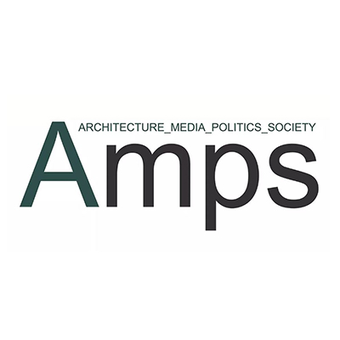Register
Event Details
In 1975 the World EXPO opened in Okinawa, Japan. Its centerpiece was ‘Aquapolis’, a floating city designed by the leading ‘metabolist’ architect Kiyonori Kikutake. By the time it closed one year later, Reyner Banham had published Megastructure: Urban Futures of the Recent Past. Paul Virilio had also coined the term dromology to explain the impact of speed and technology on contemporary culture. For all, speed and technology were not only central to architectural and urban design, but also the mediated culture of spectacle around them. The debates they instigated were not one dimensional however. Virilio’s interest in technology was matched by concerns for social justice. Banham’s focus on megastructures was nuanced by ideas on responsive environments. Kikutake’s interest in ‘spectacle’ was tied to an interest in ecology as manifest in the 1975 EXPO itself.
The event that this conference aligns with, EXPO 2020, addresses the dichotomies found in the work of these theorists. For many, the phenomenon of the EXPO is the epitome of contemporary fast-paced design and development. Commercially driven, built at break neck speed, led by star architects and premised on instant urban planning. EXPO 2020 has all these traits. However, it also presents itself as responsive to social and environmental concerns. It is powered by solar arrays, recycles wastewater and monitors its carbon footprint. It touts its long term plan for housing and mixed-use development post EXPO. It is themed around opportunity, mobility and sustainability. As with the city of Dubai itself – the poster-child of rapid development in the Gulf – EXPO 2020 is the perfect backdrop to this conference.
Rapid Cities – Responsive Architectures seeks to examine the dialectic, tensions, problems and possibilities of architecture and urbanism as technologically imbued, fast-paced commercial exercises. Can the design and construction of the built environment be fully profit-driven, remain responsive to climate and cultural heritage? Is spectacle architecture consistent with vernacular design, accessible transport and best practice construction? How do rapidly planned cities ensure social integration, urban health and produce affordable housing? Is it the role of the design and construction industries to respond to these issues at all? Should we embrace speed and technology as motors of design, construction and development as ends in themselves? If we do, what are the advantages and likely results? What does the history of these issues tell us about future trends?
Disciplines:
Seeking diverse perspectives on best practice design, construction and development models for cities and architecture the conference welcomes contributions from a range of disciplines:
Urban Design | Architecture | Construction | Sustainability | Engineering | Housing | Public Health | Sociology | Transport | Business | Technology | History and Culture | Media
Special Calls:
As part of its collaboration with PARADE (Publication and Research in Art, Design and Environments) this conference specifically seeks contributions from scholars in:
Film, Media and Communications | Art & Art History | Social Environments
Themes:
Urbanism: Global Cities | Urban design in the Gulf | Temporary urbanism | Regional Planning. Design: Emerging ‘Styles’ | High Rise-low density | Spectacle architecture. Speed: Just-in-time construction | Prefabrication | Fast-track procurement. Technology: Computational design | 3D printed buildings | BIM | Virtual Reality. Social: Communities and Activism| Affordable Housing | Right to the City. Sustainability: Resilience | Net-zero energy design | Climate-responsive architecture. Culture: Heritage | Tourism | Branding | Real Estate and Development. Infrastructure: Integrated Transport | The Intelligent City | The Walkable city…. and more.
Key Dates:
30 June 2020: Abstract Submissions (Round One)* | 20 July 2020: Abstract Feedback | 01 October 2020: Late Abstracts (Round Two)
Conference: 22-24 November, 2020
15 January 2021: Full Paper Submissions (where applicable) | 15 March 2021: Feedback for publication | 10 May 2021: Full Paper re-submission | 30 August 2021: Publication
* Round One submissions allow for early review. This is open to all but is particularly useful for international delegates requiring a visa to attend the conference.
Formats:
The conference is open to various formats allowing people to write a paper, attend in person or present via film and have their presentation permanently available via the AMPS Youtube channel
Pre-recorded video (15-20 minutes) | Conference Presentations (15-20 minutes) | Written Papers (3,000 words) *
All papers are double blind peer reviewed and will be include in the AMPS Conference Proceedings Series, ISSN 2398-9467.
Subject to review, selected authors will be invited to develop longer versions of their papers for inclusion in either a Special Issue publication of the academic journal Architecture_MPS ISSN 2020-9006, or in a specially produced conference book. All publications will be developed by PARADE (Publication and Research in Art, Architectures, Design and Environments) which brings together multiple publishers including:
Routledge Taylor & Francis | UCL Press | Intellect Books | Cambridge Scholars Publishing | Vernon Press | Libri Publishing.
Submission and Registration:
Download: Abstract submission form
Please send this fully completed document as a Microsoft Word attachment.
Subject line for emails: Abstract Submission Dubai 2020
File name for attachment: Name_Surname_Summary Title_Dubai_2020
Example file name: Charlie_Smith_Yet-Another-Apartment-Block_Abstract_Dubai_2020
Submit forms to: events@architecturemps.com

When
Location
- American University in Dubai

